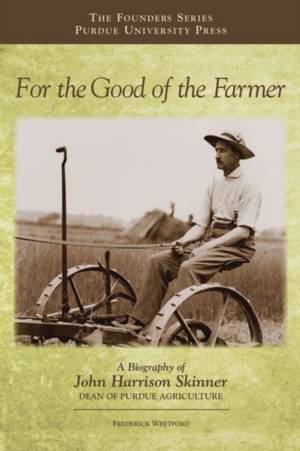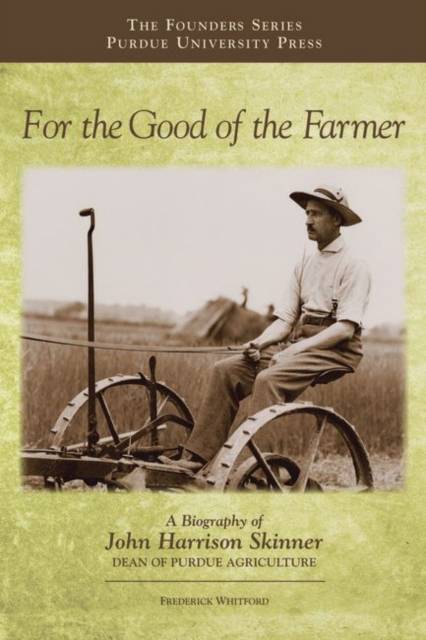
Bedankt voor het vertrouwen het afgelopen jaar! Om jou te bedanken bieden we GRATIS verzending (in België) aan op alles gedurende de hele maand januari.
- Afhalen na 1 uur in een winkel met voorraad
- In januari gratis thuislevering in België
- Ruim aanbod met 7 miljoen producten
Bedankt voor het vertrouwen het afgelopen jaar! Om jou te bedanken bieden we GRATIS verzending (in België) aan op alles gedurende de hele maand januari.
- Afhalen na 1 uur in een winkel met voorraad
- In januari gratis thuislevering in België
- Ruim aanbod met 7 miljoen producten
Zoeken
For the Good of the Farmer
A Biography of John Harrison Skinner, Dean of Purdue Agriculture
Frederick Whitford
€ 69,45
+ 138 punten
Omschrijving
The key role that farming plays in the economy of Indiana today owes much to the work of John Harrison Skinner (1874-1942). Skinner was a pioneering educator and administrator who transformed the study of agriculture at Purdue University during the first decades of the twentieth century. From humble origins, occupying one building and 150 acres at the start of his career, the agriculture program grew to spread over ten buildings and 1,000 acres by the end of his tenure as its first dean. A focused, single-minded man, Skinner understood from his own background as a grain and stock farmer that growers could no longer rely on traditional methods in adapting to a rapidly changing technological and economic environment, in which tractors were replacing horses and new crops such as alfalfa and soy were transforming the arable landscape. Farmers needed education, and only by hiring the best and brightest faculty could Purdue give them the competitive edge that they needed. While he excelled as a manager and advocate for Indiana agriculture, Skinner never lost touch with his own farming roots, taking especial interest in animal husbandry. During the course of his career as dean (1907-1939), the number of livestock on Purdue farms increased fourfold, and Skinner showed his knowledge of breeding by winning many times at the International Livestock Exposition. Today, the scale of Purdue's College of Agriculture has increased to offer almost fifty programs to hundreds of students from all over the globe. However, at its base, the agricultural program in place today remains largely as John Harrison Skinner built it, responsive to Indiana but with its focus always on scientific innovation in the larger world.
Specificaties
Betrokkenen
- Auteur(s):
- Uitgeverij:
Inhoud
- Aantal bladzijden:
- 654
- Taal:
- Engels
- Reeks:
Eigenschappen
- Productcode (EAN):
- 9781557536433
- Verschijningsdatum:
- 15/09/2013
- Uitvoering:
- Hardcover
- Formaat:
- Genaaid
- Afmetingen:
- 163 mm x 236 mm
- Gewicht:
- 1179 g

Alleen bij Standaard Boekhandel
+ 138 punten op je klantenkaart van Standaard Boekhandel
Beoordelingen
We publiceren alleen reviews die voldoen aan de voorwaarden voor reviews. Bekijk onze voorwaarden voor reviews.









